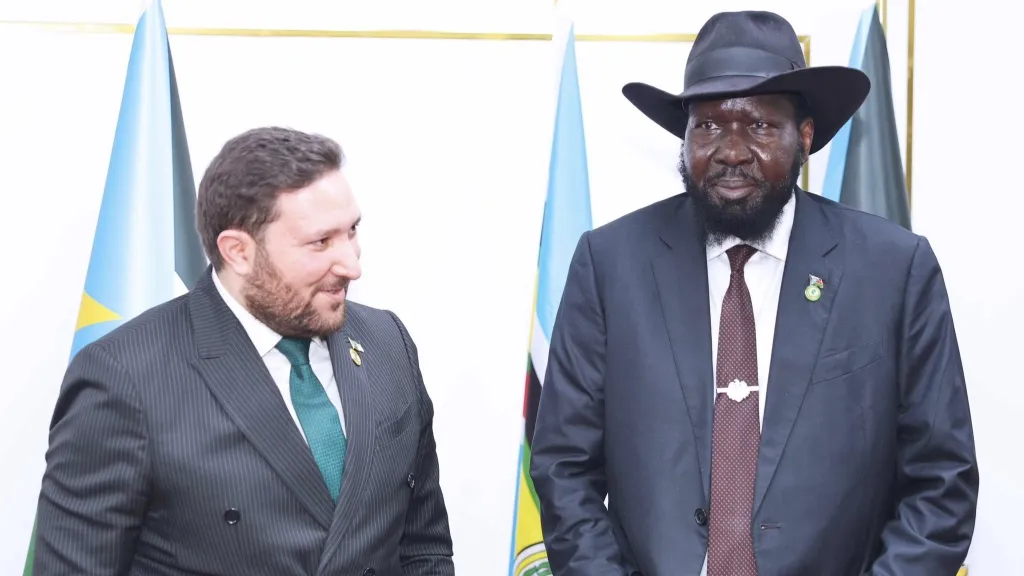The South Sudan Civil Society Forum (SSCSF) has welcomed the African Union Peace and Security Council’s (AUPSC) call for an inclusive high-level political dialogue among the political leaders for an amicable resolution of the current political situation in the country following its recent field mission to Juba.
However, the SSCSF, in a press release on Wednesday, highlighted that the AUPSC press release does not contain any concrete commitments that would help translate this recommendation into a structured and sustained process.
“Without further practical steps, there is a risk the call will remain rhetorical rather than actionable,” the SSCSF statement said.
“We particularly appreciate the reaffirmed call for ‘an inclusive high-level political dialogue among the political leaders for an amicable resolution of the current political situation in the country,’” the statement reads in part. “This call is consistent with our long-standing position that dialogue remains the most viable pathway to addressing South Sudan’s deepening political and governance challenges.”
“We also note with appreciation the recent statements from several of South Sudan’s bilateral and multilateral partners, among them the Embassies of Canada, Germany, the Netherlands, Norway, the United Kingdom, the United States, and the Delegation of the European Union, underscoring the urgency of renewed dialogue, expressing readiness to support such efforts, and encouraging steps to create a conducive environment for political engagement, including the release of political figures currently under restriction,” the statement added.
The SSCSF reminisced that, importantly, in a speech on 16 July 2025, marking the reopening of parliament after a six-month recess, President Salva Kiir publicly called on holdout opposition groups to embrace dialogue and reconciliation.
“To the holdout groups, I extend my hand for peace once more,” Kiir said at the time. “The suffering of our people must not be prolonged by the continued rejection of dialogue.”
The SSCSF contends that the convergence of calls for dialogue from the AU PSC, South Sudan’s international partners, civil society, religious leaders, and the President himself marks a pivotal moment.
“This rare and critical consensus must now be matched with decisive, coordinated action to define and deliver a credible, inclusive, and time-bound political dialogue, laying the groundwork for a peaceful and democratic transition in South Sudan,” the SSCSF said.
According to the Forum, the Tumaini Initiative, launched in Nairobi in May 2024 under the auspices of the Kenyan Government, the Intergovernmental Authority on Development (IGAD), and the Community of Sant’Egidio, provided a crucial platform for engaging non-signatory holdout groups to the Revitalized Agreement on the Resolution of the Conflict in South Sudan (R-ARCSS).
“This initiative, launched in the presence of the Chairperson of the African Union Commission, achieved significant preliminary success, notably securing consensus on several key protocols,” the statement reads. “By enhancing its inclusivity, expanding its scope, and updating its agenda to reflect current realities such as heightened insecurity, political fragmentation, diminishing civic space, and notable uncertainty, the Tumaini Initiative can be effectively revitalized to foster the urgently needed dialogue.”
The SSCSF also called for the inclusion of faith-based mediation as one of several potential options to foster an inclusive and credible political dialogue.
The SSCSF called upon the AUPSC, IGAD, the Governments of South Sudan and Kenya, religious leaders, as well as international partners and all relevant stakeholders to translate the shared call for inclusive political dialogue into concrete and coordinated action by mobilizing the necessary political will, technical expertise, and financial resources to establish a revitalized and expanded dialogue framework.
“Leverage their good offices to accompany, facilitate, and mediate the dialogue process, ensuring close coordination among the AU, IGAD, the United Nations, regional actors, and bilateral partners to foster coherence and effectiveness,” the SSCSF urged. “Create a conducive environment for dialogue by removing all barriers to political engagement, including lifting restrictions on political leaders, such as their release from detention, and fully guaranteeing fundamental freedoms of expression, assembly, and association.”
The SSCSF also urged the AUPSC, IGAD, the Governments of South Sudan and Kenya, religious leaders, as well as international partners to ensure that the dialogue process is genuinely inclusive and incorporates the voices of a broad cross-section of the South Sudanese citizenry, including representatives from academia, faith-based and religious institutions, youth and women’s groups, as well as the wider civil society.
The SSCSF affirmed its readiness to work closely with all stakeholders, national, regional, and international, to explore and support available options and mechanisms to make this crucial dialogue a reality.
“Only through such a collective and inclusive approach can South Sudan overcome its current challenges and advance toward a peaceful, democratic, and successful transition,” the statement concluded.




